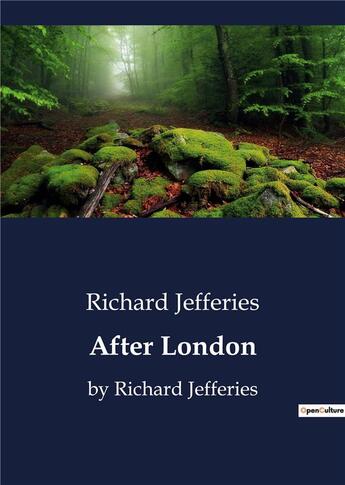Des idées de lecture pour ce début d'année !
Passionné(e) de lecture ? Inscrivez-vous
gratuitement ou connectez-vous pour rejoindre la
communauté et bénéficier de toutes les fonctionnalités du site !

After London presents a version of England many generations after an apocalyptic event has drastically depopulated the country, leaving nature to take back the land and human survivors to scrape what they can from their surroundings. Petty kings and corrupt republics rule from the region around the lake that has formed in the middle of the country. Wild men hide in the woods. Society has regressed to a way of life similar to the medieval age.
The novel is told in two parts. The first details what's known of the fall of civilization, while the second part follows the son of a baron as he sets off to explore beyond the kingdom he was born into. Nature, civilization, violence, poverty, exploitation, and exploration are major themes.
Richard Jefferies wrote the novel toward the end of his life. It combines the nature writing he is traditionally known for, with a fantastical science fiction setting, making it an early example of post-apocalyptic fiction. The surreal exploration of the former site of London bears a striking resemblance to the aftermath of a nuclear explosion, decades before the atomic bomb was created.
After London was an inspiration for William Morris, who said absurd hopes curled around my heart as I read it. Morris would go on to reference the pastoralism present in After London in his utopian novel News From Nowhere.
Il n'y a pas encore de discussion sur ce livre
Soyez le premier à en lancer une !

Des idées de lecture pour ce début d'année !

Si certaines sont impressionnantes et effrayantes, d'autres sont drôles et rassurantes !

A gagner : la BD jeunesse adaptée du classique de Mary Shelley !

Caraïbes, 1492. "Ce sont ceux qui ont posé le pied sur ces terres qui ont amené la barbarie, la torture, la cruauté, la destruction des lieux, la mort..."